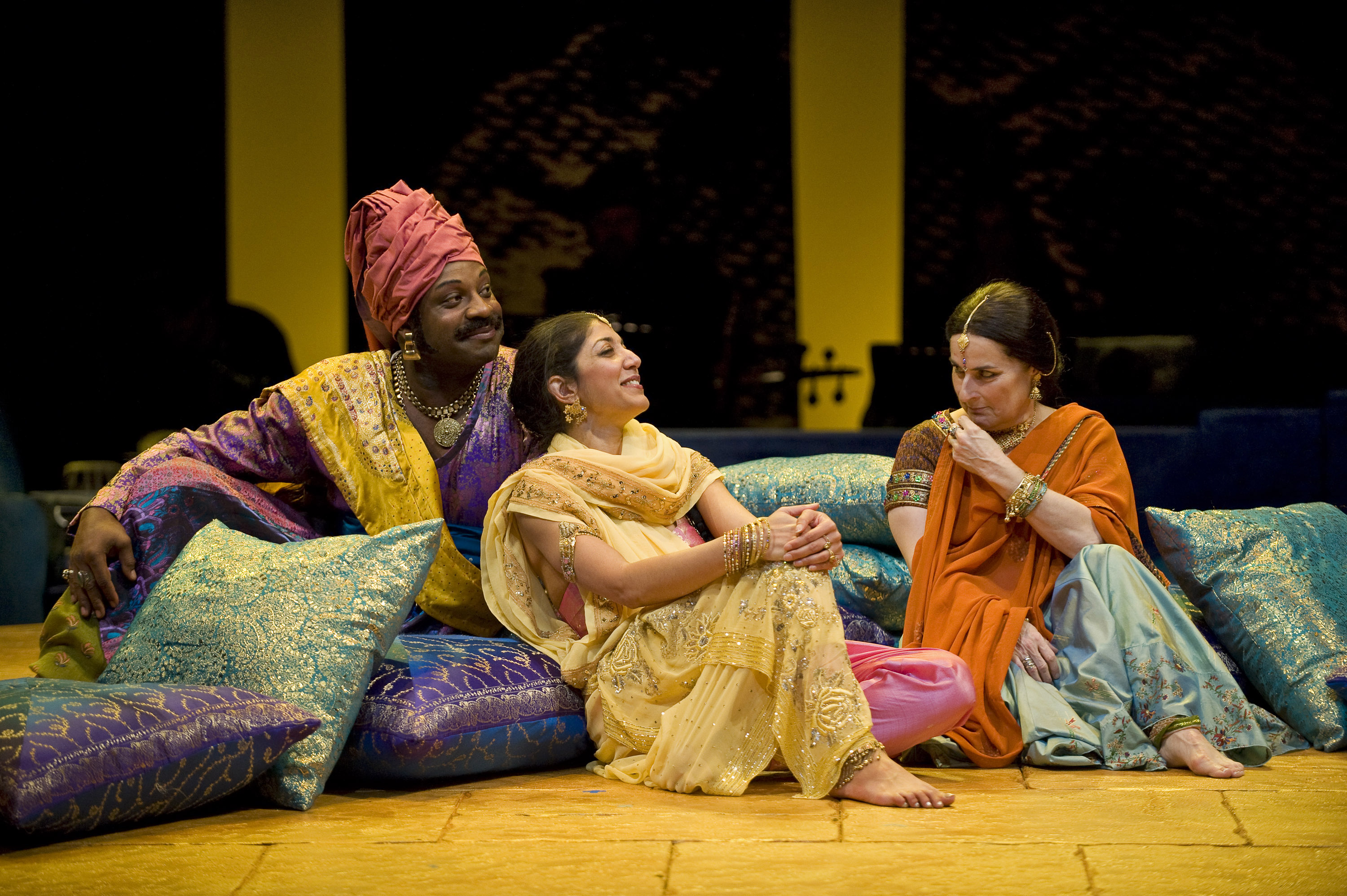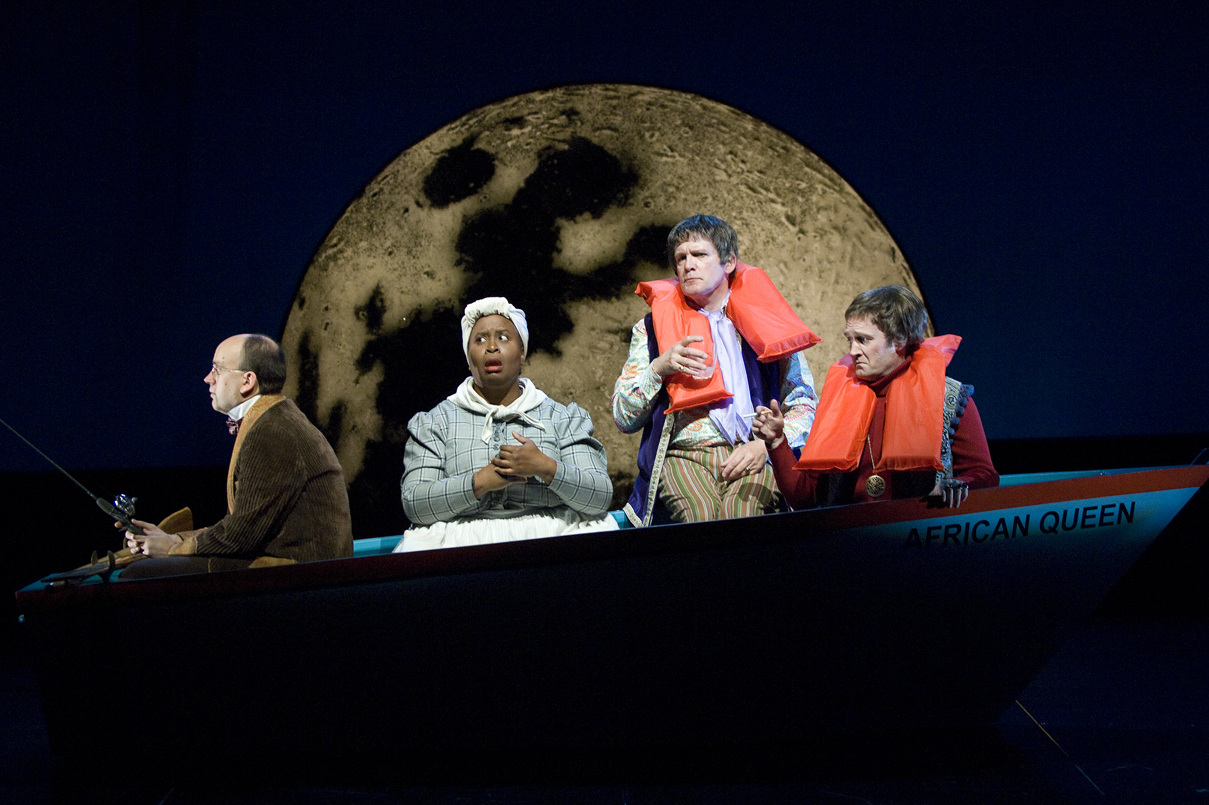It’s been around since 1935, when, legend has it, a young college prof named Angus Bowmer persuaded the town fathers of Ashland, Oregon, to let him produce two performances of “Twelfth Night” and one of “The Merchant of Venice” on an old Chautauqua stage for the town’s Fourth of July celebrations. They gave him $400 and one stipulation: He’d also have to stage some boxing matches to cover the expected deficit from the Shakespearean shows. The boxing matches lost money. The Shakespeare did boffo business and covered the prize-ring losses. And with that, the Oregon Shakespeare Festival was off and running.
A lot’s changed in the intervening 73 years. The festival is by most measures the biggest regional theater company in the United States, producing 11 plays annually — usually four or five of them by Shakespeare — in a season that runs from late February through October, and which uses three theaters: the 1,200-seat, open-air Elizabethan Stage (actually an outdoor Elizabethan-style stage attached to Greek-style amphitheater seating with a wraparound porch like a vintage 1930 baseball park’s); the exquisitely adaptable, 600-seat Angus Bowmer Theatre; and the sophisticated black box known as the New Theatre, which averages about 300 seats. To these shows the festival sells more than 400,000 tickets every season, making Ashland a particularly upscale sort of tourist town, with an Elizabethan purse, sweet Victorian buildings and, underneath both, the practical bones of a modern Western working town.
As the festival goes, in many ways, so goes Ashland: The commercial success of the two are intricately linked. Both have benefited from the festival’s astonishing stability. After Bowmer, it’s had just four artistic directors: Jerry Turner, Henry Woronicz, Libby Appel and, beginning this season, Bill Rauch.
Continue reading Ashland times 2: A Q&A about the festival’s new direction


